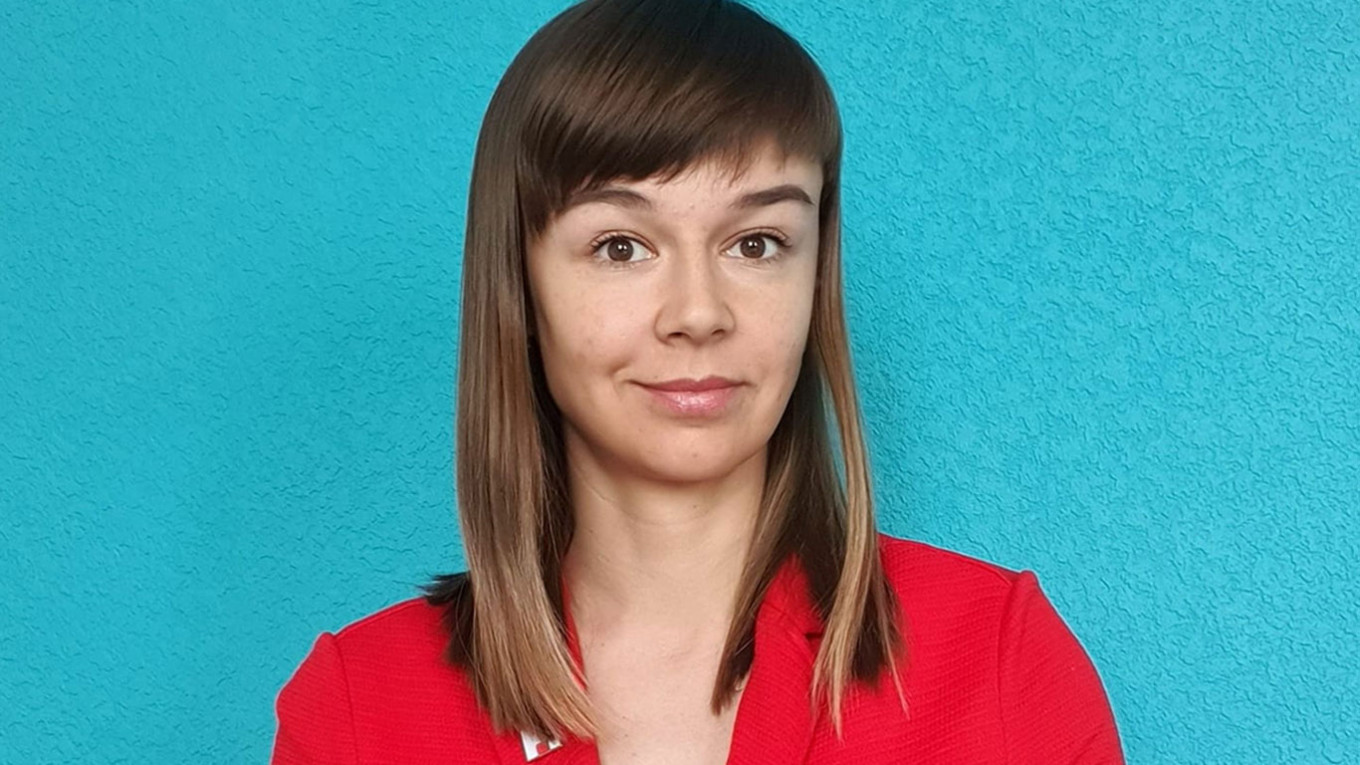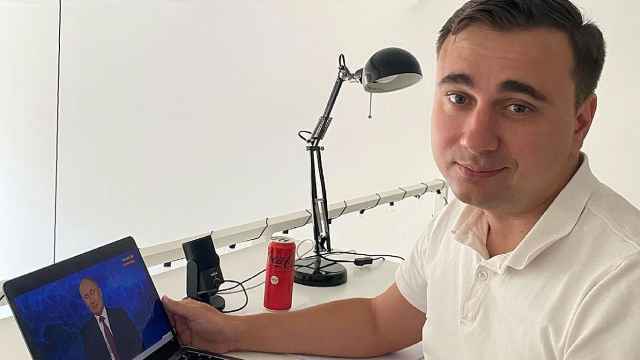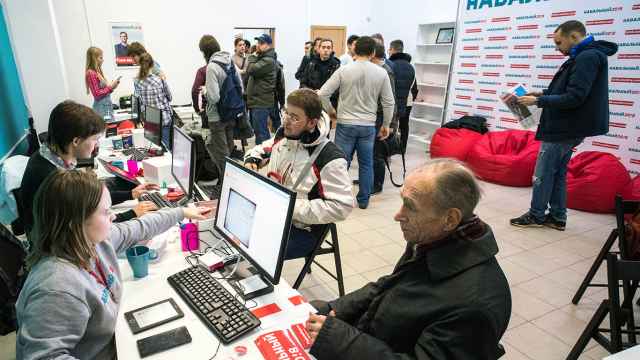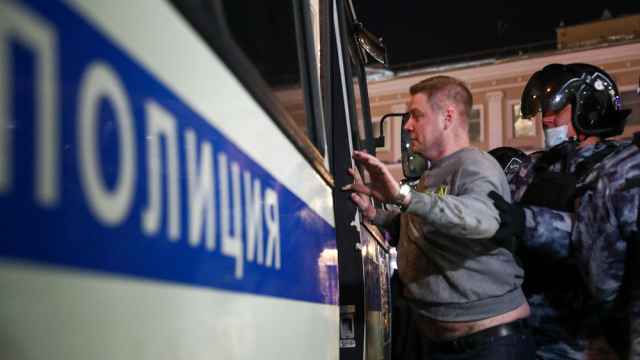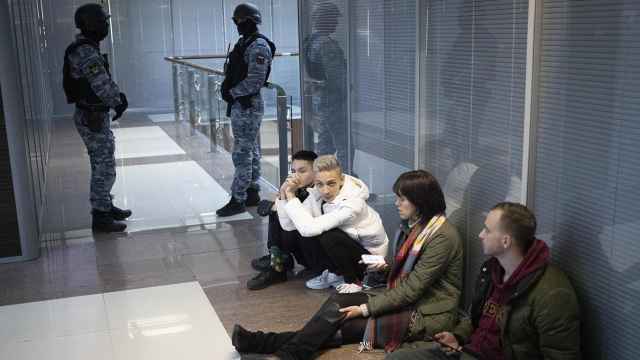Updated at 11:30 a.m. on Dec. 29 to add three more detentions.
At least five former coordinators of jailed Kremlin critic Alexei Navalny’s network have been detained nationwide on charges of organizing an extremist group, media reported Tuesday.
The raids and arrests in the cities of Tomsk and Irkutsk come one month after a court in central Russia jailed another ex-Navalny coordinator who faces up to 10 years in jail if retroactively convicted for creating an “extremist” group.
Tomsk municipal deputy Ksenia Fadeyeva — who headed Navalny’s Tomsk office before it self-liquidated this spring — was detained by security agents from Moscow, Interfax reported, citing an unnamed source.
The investigators suspect Fadeyeva of organizing an extremist group, Navalny’s exiled spokeswoman Kira Yarmysh tweeted.
Fadeyeva faces up to 12 years in prison if convicted.
In Irkutsk, authorities detained former Navalny regional head Zakhar Sarapulov.
Conflicting reports suggest that investigators suspect Sarapulov of either also organizing an extremist group or taking part in an NGO that “infringes on the identities and rights of citizens,” according to the independent broadcaster Dozhd.
Yegor Butakov, the former coordinator of Navalny’s Arkhangelsk campaign office, and Andrey Gorodetsky, the former social media editor for Navalny’s Saratov campaign office, were also detained Tuesday.
Navalny's associates were still checking to confirm whether Vadim Ostanin, the former head of Navalny’s Barnaul campaign office, was detained after law enforcement searched his mother's home.
Senior Navalny aide Leonid Volkov, who is living in exile, said on social media that both Fadeyeva and Sarapulov had declined offers to leave Russia at a time when at least one-third of Navalny's team have gone into self-exile. Volkov said Fadeyeva turned down the offer despite fears of arrest due to her status as a municipal deputy, while Sarapulov cited his journalistic career.
“We have every reason to believe that this is a new round of repression for ‘extremism,’ brought forward retroactively for the Navalny headquarters’ absolutely legal and public activities in 2017-21,” Volkov wrote on Telegram.
“Ksenia Fadeyeva and Zakhar Sarapulov arę the best people in Russia, they are true patriots and worthy citizens,” he added.
A Moscow court blacklisted Navalny’s political and activist networks as “extremist” in June and law enforcement authorities have since opened criminal cases into “extremism” that target the opposition figure and his allies.
In February, Navalny was sentenced to 2.5 years in prison for violating parole in an old fraud case he calls politically motivated after surviving a nerve agent poisoning he blames on the Kremlin.
His arrest upon returning to Russia from recovery in Germany helped spark nationwide protests where thousands were detained.
Critics call the arrests, as well as “extremist” and “foreign agent” designations following the widespread rallies, part of a sweeping Kremlin crackdown on dissenting voices.
A Message from The Moscow Times:
Dear readers,
We are facing unprecedented challenges. Russia's Prosecutor General's Office has designated The Moscow Times as an "undesirable" organization, criminalizing our work and putting our staff at risk of prosecution. This follows our earlier unjust labeling as a "foreign agent."
These actions are direct attempts to silence independent journalism in Russia. The authorities claim our work "discredits the decisions of the Russian leadership." We see things differently: we strive to provide accurate, unbiased reporting on Russia.
We, the journalists of The Moscow Times, refuse to be silenced. But to continue our work, we need your help.
Your support, no matter how small, makes a world of difference. If you can, please support us monthly starting from just $2. It's quick to set up, and every contribution makes a significant impact.
By supporting The Moscow Times, you're defending open, independent journalism in the face of repression. Thank you for standing with us.
Remind me later.


